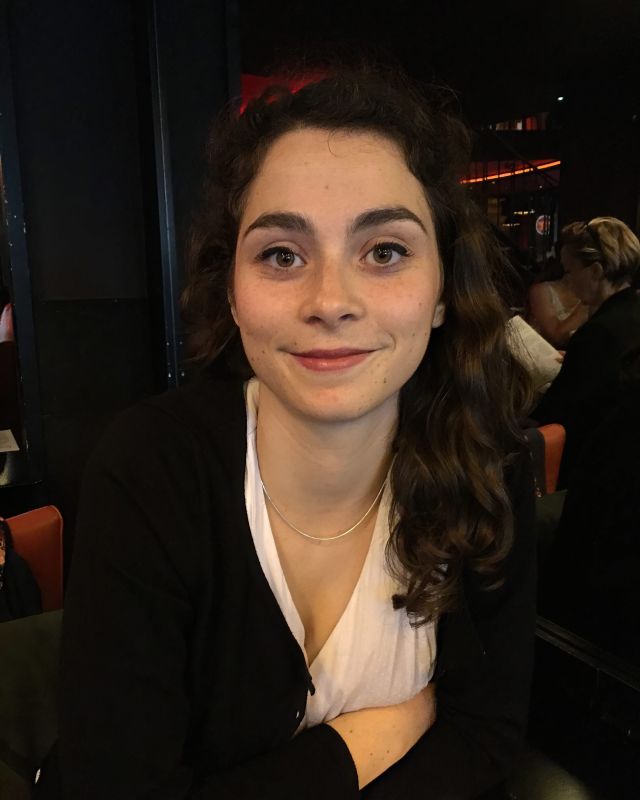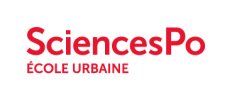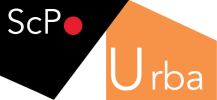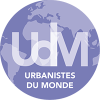Portrait
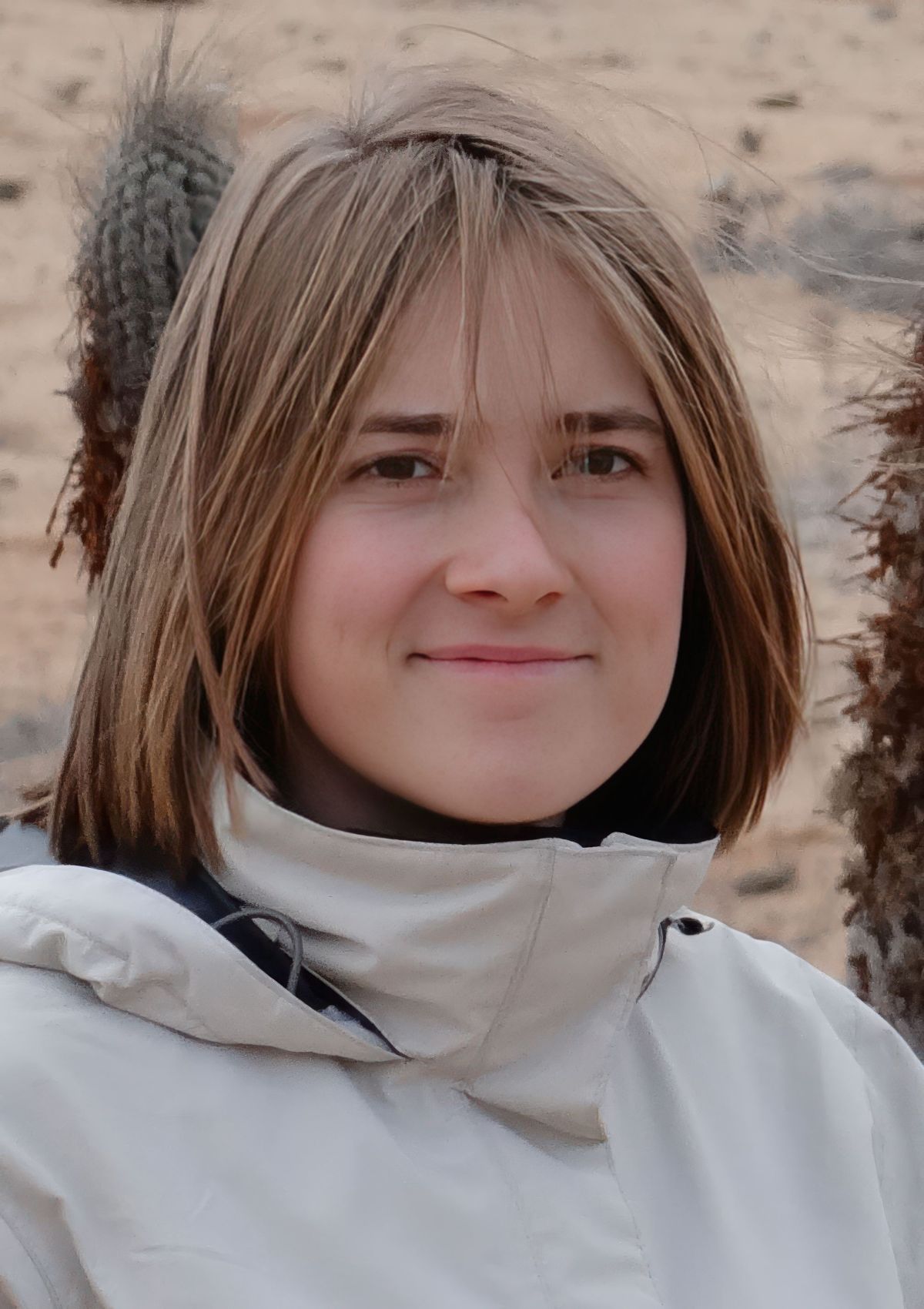
Fanny Coulombié - STU - from Agro Paris Tech to Sciences Po
Posted on | Alumni Portrait
Portrait by Lise Patron
From Agro Paris Tech to Sciences Po, a course focused on sustainable development and health-friendly urban planning
Hello Fanny, to begin with, can you tell us a little about your background and the reasons that led you to the STU master?
I entered the AgroParisTech engineering school after 2 years of preparatory class to train myself on environmental issues. This curriculum allowed me to approach territorial planning while remaining relatively focused on sustainable development aspects. At the end of my second year and of a break, I was very interested in the "city" object and thus turned to the double degree between Agro and SciencesPo in order to discover more and to complete my training, in particular on the subject of the governance of territories and the economic and socio-political dimensions.
How did the transition between AgroParisTech and Sciences Po go?
Before entering the master's program, I was afraid that I didn't have enough general knowledge in political science, and that this would penalize me to follow the program. In the end, in each course, the teachers cover the basics, there were not so many prerequisites, and the transition went smoothly.
What's next? How did you find your internship, where did you do it and what did you do there?
As part of my engineering degree, I had already done two internships in the field of planning: the first one in an architecture agency, where I carried out an Environmental Approach to Urbanism (AEU) on a planning project, and the second one on an academic research project in a geography institute on the impact of the planned urbanization of a natural area on the ecosystem services it provided to the local population (social impact and urban heat island).
At the end of the STU master's degree, I looked for an internship in planning/environment but this time on the side of the project manager. During a meeting dedicated to internships organized by the Urban School, I exchanged with several professionals, including one from the EPA (public development establishment) Plaine de France (which has since merged with Grand Paris Aménagement). The two positions for which he was looking for interns, more operational and not so much oriented on environmental issues, did not interest me directly, but he redirected me to his colleagues in the Strategy and Development Department, who contacted me again for an internship as a sustainable development consultant. These six months gave me a global vision of the institution's missions. I was mobilized on the scale of the large territory, in particular on the reflections around the green and blue frames (local and large territory scales) and the agricultural scheme of the Greater Roissy. Around Roissy Charles de Gaulle airport, the land (still largely agricultural) is subject to very strong land pressure, which poses political and governance challenges in order to preserve a functional agricultural activity. I therefore worked on the implementation of a charter that was signed by the various local actors (elected officials, institutions, associations, etc.), and found it very interesting to witness the often very political interplay between them. I also accompanied local authorities in the setting up of sustainable development projects on various subjects (energy, waste, mobility...) and answered calls for projects (TEPCV, sustainable city). Finally, I participated in the management of an experimental project of ecological restoration and urban market gardening around an urban wasteland in partnership with the Nature 2050 project of the Caisse des Dépôts et des Consignations (CDC).
And after the Grand Oral, what did you do?
After my internship, I wanted to continue working in the field of territorial strategies. I sent applications, answered offers and developed my network by interviewing professionals from different sectors, which allowed me to refine my project and especially to deepen my knowledge of the actors of the sector. Finally, it was a teacher from STU, whom I met during the Sustainable Economy workshop, who directed me to several engineering firms with a good reputation in this sector. Vizea offered a position for more experienced people but I took a chance and was hired to develop a new "Sustainable Territory" division (in addition to the existing sustainable development and sustainable construction divisions). This allowed me to work on a wide range of assignments: developing a strategy for the new division (forecasting, defining supply and demand, positioning the company) but also responding to calls for tenders and working on the studies won and in contact with clients, local authorities and institutions (such as ADEME). All this on very varied subjects: Agenda 21, PCAET, cycling scheme, health environment, energy master plan, etc. This really gave me the opportunity to approach the different facets of sustainable development at the territorial level through varied and not very repetitive tasks.
What about today?
When I moved to Auvergne-Rhône-Alpes, I re-launched my network, which was very focused on the Ile de France, which gave me contacts to meet several professionals in the region. They themselves gave me other contacts, and above all gave me a better vision of the sector (structures hiring more or less, emerging topics in the region, etc.). At the same time, I responded to a few offers in structures that interested me, including one for the Ville et aménagement durable (VAD) exchange and resource center, which did not totally correspond to what I was looking for since it was more focused on construction and health/environment. I specified in my cover letter that I was also very interested in the sustainable development and territory components, which was also evident in my CV. It turns out that the structure was interested in someone competent in this field but had not mentioned it in the offer. My network also helped me because a member of VAD exchanged information about my application (without my knowledge) with a person in my network, who recommended me. So that's where I'm working now. It's about animating the network of professionals in the region and accompanying them in order to promote construction and development practices in line with sustainable development. We work with many actors: elected officials and services of communities (region, cities, inter-municipalities), developers, design offices, developers, architects and urban planners. For my part, I lead three think tanks: "Health and Building", "Health and Planning" and "Prospective Platform for Living Today and Tomorrow in Auvergne-Rhône-Alpes". I also participate in the organization of workshops ("How to take into account the health issues of future occupants during the construction phase? "How to improve indoor air quality in day care centers and schools? "How to improve the involvement of users in the City Factory?"), visits to exemplary operations, the production of deliverables or tools, such as a serious game to rethink the jobs and processes of the development chain from a sustainable development perspective, etc.
Health seems to be at the heart of your current job. How does it fit in with object-ville?
It is a matter of considering health as defined by the World Health Organization (WHO), namely a state of complete well-being of the individual (physical, social, mental). This well-being can be influenced by many factors, many of which are directly related to building and design. Even if Health-Friendly Urban Planning (HUP) and Health Impact Assessments (HIA) tend to develop recently, they are still very innovative and not much addressed by the actors of the planning, even though they have very important consequences in the daily life (in relation with mobility, pollution, presence of green spaces, creation of social link but also with acoustic comfort and problems generated by urban heat islands). These issues are also present in the habitat, since they involve the choice of materials, furniture, ventilation, acoustic and hygrothermal comfort (summer comfort/winter comfort) and indoor air quality. Health is an angle of approach that allows to address almost all the issues of sustainable development, not to say all, in a transversal approach, and which is generally quite consensual.
How do you see your future career?
My current job is extremely varied and topical. Indeed, I work in collaboration with many actors and on multiple subjects. I am in a position to monitor innovations, but also to produce content for the network. And there is a lot to be done because many subjects are not yet dealt with by the city's actors: it is a question of exploring them so that civil society can seize them. For the moment, I intend to continue my work within this structure.
What did the STU master's degree bring you?
STU has helped me to explore many topics, especially issues related to urban governance. I think that the strength of the teaching comes from the free choice of the subjects of the file to be carried out, which makes it possible to deepen the topics which are close to our hearts. This master's degree and the collective project also teach us work methods that are valued on the job market.
Finally, would you have any advice for current students?
I would tell them not to hesitate to contact professionals along the way, not to ask for a job or an internship, but to find out what they do, to start making contacts. In my case, these meetings helped me to orient myself and opened up decisive opportunities in my career.
Then, I would tell them not to be afraid of lacking experience or skills when they leave the master's program, you learn by doing, and you don't arrive alone in a new job but surrounded by a team.
I would therefore advise them not to limit themselves to the comfort zone of what they know and can do and to go straight to the missions and fields that attract them the most!
Léa Loubier - STU, 2015 - A course focusing on housing and access to housing policies
Posted on January 08, 2019
To begin with, can you give us a little reminder of your background and the reasons that led you to the STU master? After the baccalaureate, I studied at the…
Diane Collier - STU 2018 - Digital Uses and Services Consultant at Tactis
Posted on November 19, 2018
Can you briefly remind us of your background? After the baccalaureate, I did two years of preparatory studies in literature and social sciences in Marseille…
 English
English  Français
Français 